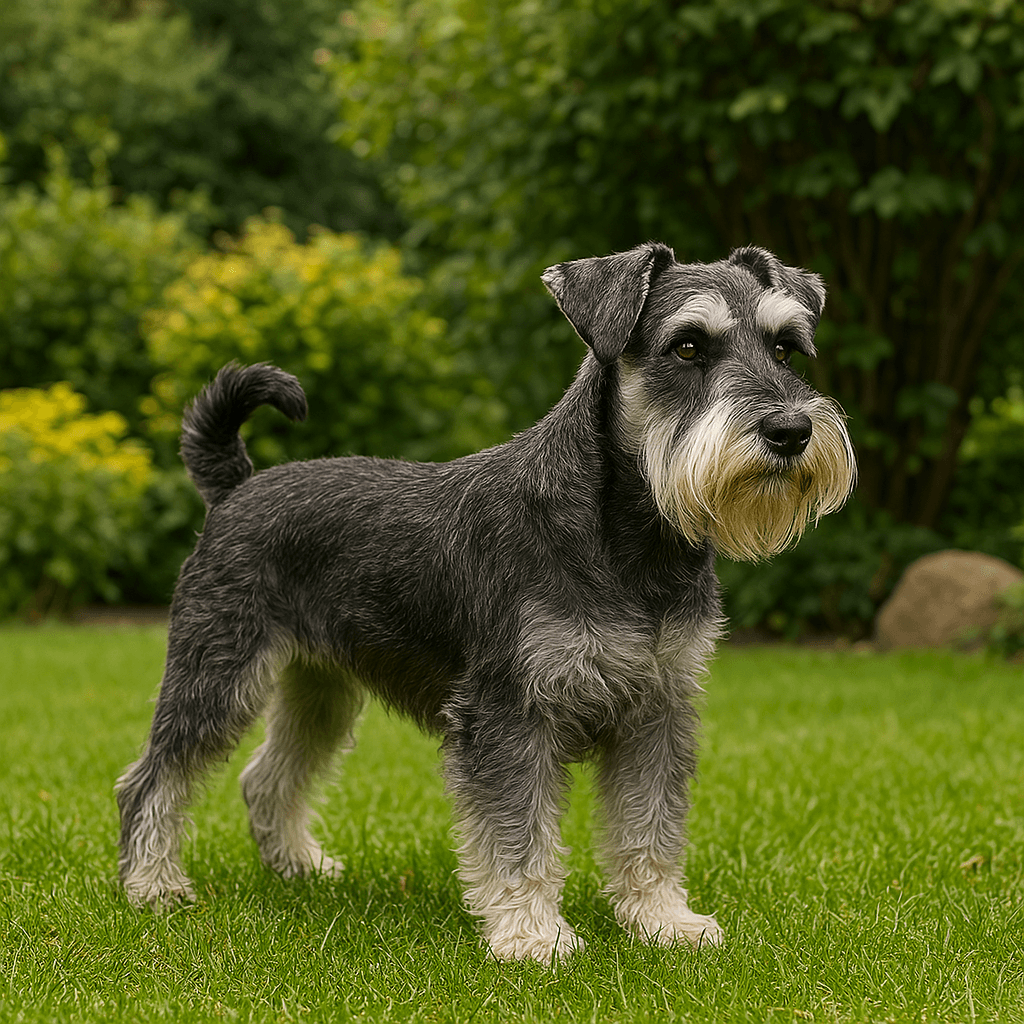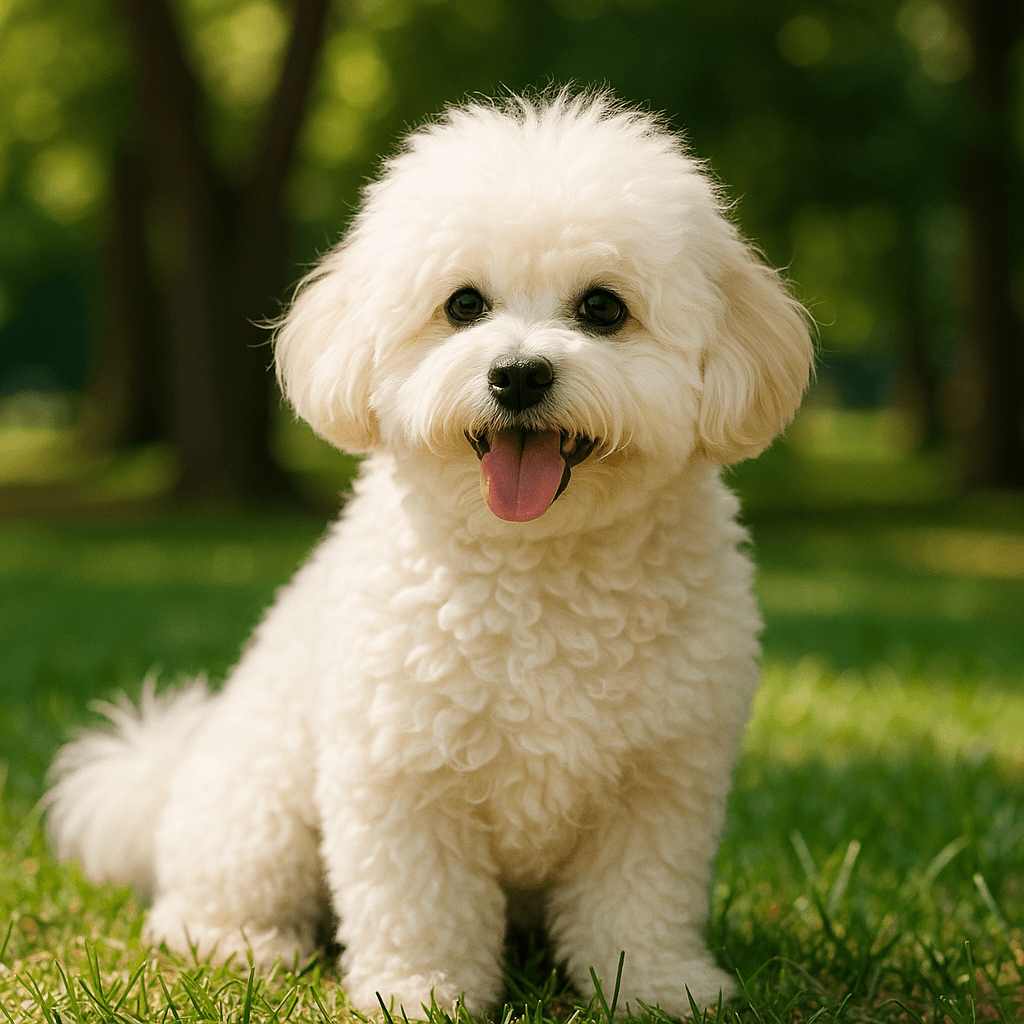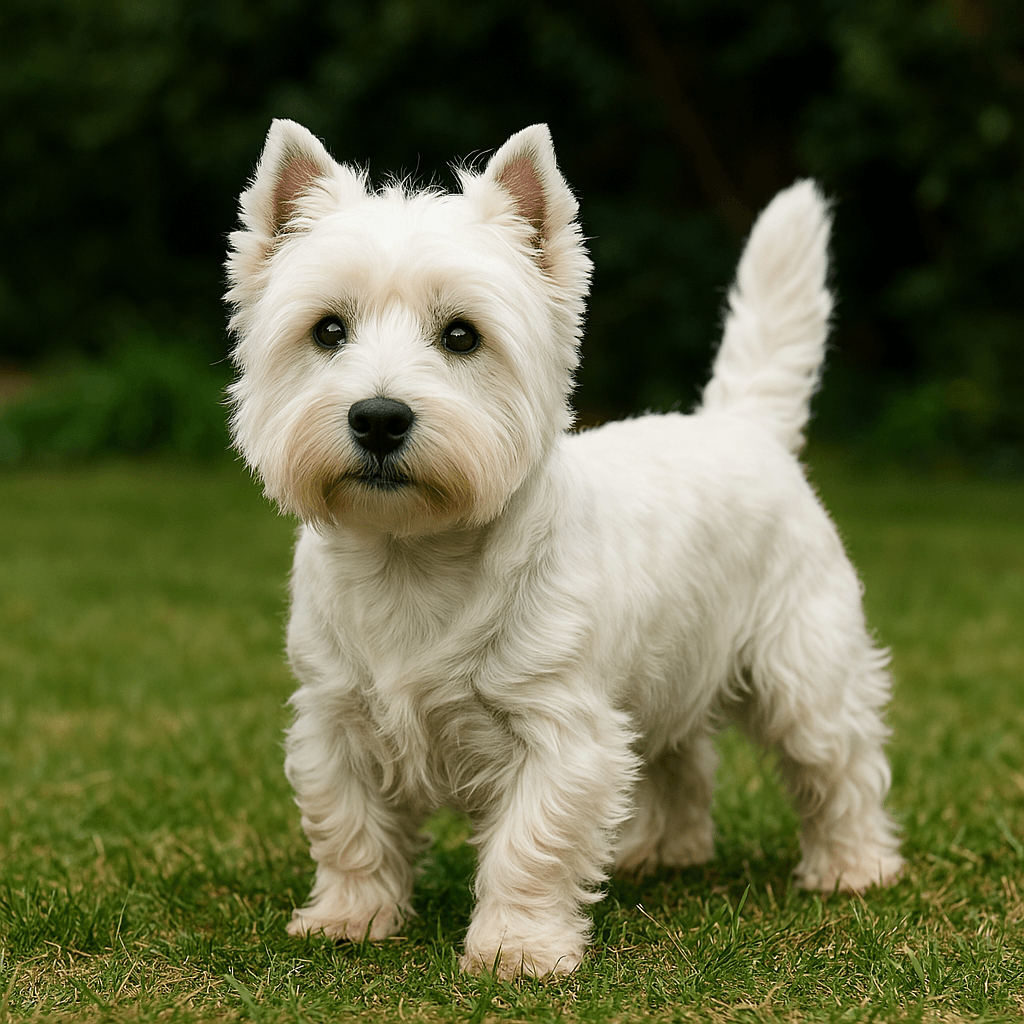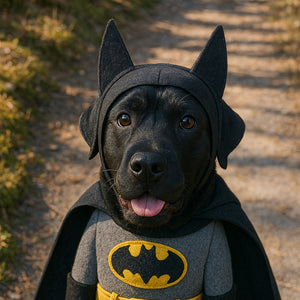
Miniature Schnauzer – A Complete Guide to the Breed
The Miniature Schnauzer is an exceptional family dog with a lively temperament, intelligence, and immense charm. Thanks to its small size and low susceptibility to allergens, it has become a favorite breed among city dwellers, families with children, and seniors alike. This post is a compendium of knowledge about this breed – you'll find all the essential information, as well as specific product recommendations for owners.
Contents
-
Origin and history of the breed
-
Appearance and construction
-
Character and temperament
-
Nutrition for the Miniature Schnauzer
-
Coat care and hygiene
-
Training and socialization
-
Adapting to the caregiver's lifestyle
-
Accessories recommended by Petto
-
Miniature Schnauzer – Questions and Answers
-
Summary
1. Origin and history of the breed
The history of the Miniature Schnauzer dates back to the late 19th century, when German breeders sought to create a smaller equivalent of the Standard Schnauzer. Crossbreeding with Poodles and Miniature Pinschers led to the creation of a breed ideal as a companion and guard dog. Despite its small size, the Miniature Schnauzer has retained its alertness , making it an excellent "household alarm."
2. Appearance and construction
-
Height : 30–35 cm
-
Weight : 5–8 kg
-
Figure : Compact, proportionate, with a well-muscled body
-
Characteristic features : Beard, bushy eyebrows, rough coat
-
Color : black, salt and pepper, black and silver, white
The Schnauzer is very elegant. Regular grooming keeps its appearance neat and stylish.
3. Character and temperament
This is a brave, intelligent, active, and confident dog. He loves being the center of attention and is very devoted to his owners. He can be alert, making him a good guard dog, but thanks to proper training, he is not aggressive.
Advantages:
-
He learns quickly
-
He likes physical activity
-
Strong bond with the owner
Challenges:
-
Can be dominant if clear boundaries are not set
-
Requires socialization from puppyhood
-
Needs something to do – boredom leads to mischief
4. Nutrition of the Miniature Schnauzer
Proper nutrition is key to a dog's health and well-being. Schnauzers are prone to developing urinary stones, so their diet should be:
-
Moderate protein
-
Balanced with minerals and vitamins
-
Adapted to the dog's age and activity level
Wet and dry foods low in phosphorus and sodium are recommended. Urinary foods are excellent for preventative care. It's also important to maintain hydration – the water bowl should always be full and fresh.
5. Coat care and hygiene
The Miniature Schnauzer is a non-shedding breed, which is a huge plus, especially for allergy sufferers. However, its rough coat requires trimming.
What to do regularly:
-
Trimming : every 2–3 months
-
Combing : 2–3 times a week
-
Washing the beard and paws after walks and meals
-
Ear and teeth cleaning
-
Trim nails every 2–4 weeks
A well-groomed Schnauzer coat is its calling card – not only for aesthetics, but also for the health of its skin.
6. Training and socialization
Schnauzers learn quickly but require a consistent and patient approach . The best results are achieved through positive reinforcement (treats, praise).
Key commands:
-
Recall (important – the dog may be aggressive towards others)
-
Leave / Don't touch
-
Silencing commands, e.g. "get to your place"
Socialization from puppyhood with people, other dogs, cats and new surroundings is essential to avoid reactivity and hypervigilance.
7. Adapting to the caregiver's lifestyle
The Miniature Schnauzer will thrive in both a single person and a large family. He will be happy in a city center apartment as long as he is kept active and mentally challenged.
He tolerates solitude well for a few hours, but shouldn't be left without human contact for extended periods. He can travel, hike in the mountains, and participate in training sessions – he's a very adaptable and people-loving dog.
8. Recommended accessories from petto.com.pl
Dog car seats
A Schnauzer feels great when traveling, but should always travel safely.
➡️ See the seats
Steps to the sofa or bed
They protect the dog's joints from jumping – especially important for older dogs.
➡️ See the steps
Comfortable beds
A well-chosen bed is the basis for regeneration and rest.
➡️ See the lairs
9. Frequently asked questions (FAQ)
Is the Miniature Schnauzer suitable for allergy sufferers?
Yes – it does not shed and its fur has a low allergenic potential.
Will a Miniature Schnauzer get along with a cat?
With proper socialization, absolutely. This breed has a strong territorial instinct, but is not aggressive.
How many times a day should you feed your schnauzer?
Adult dog – 2 times a day, puppy – 3 to 4 times a day.
Is the breed suitable for older people?
Yes, but only if the senior leads an active lifestyle and is able to provide the dog with exercise and attention.
10. Summary
The Miniature Schnauzer is a dog that combines many virtues: it's compact, intelligent, playful, loyal, and alert. However, it does require attention, exercise, and proper care. If you're ready to commit to life with this exceptional dog, you'll gain a companion who will be there for you in every situation.
Remember: the right accessories and daily care for your pet's comfort are the best investment in their health and well-being. Check out our offer at petto.com.pl and take care of everything your schnauzer needs.




 https://petto.com.pl
https://petto.com.pl